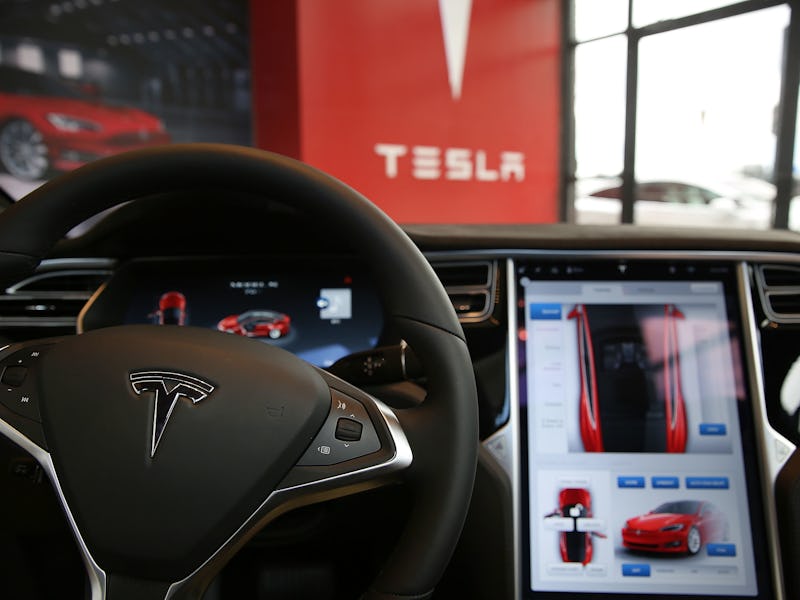Report: SEC Investigating Tesla After Fatal Autopilot Crash
Tesla may have needed to report the crash in its security filings.

The Securities and Exchange Commission is investigating whether Tesla broke the law when the company chose not to tell investors about a fatal Autopilot crash in May, according to a new report by The Wall Street Journal.
On May 7, 40-year-old Josh Brown died when his Tesla Model S crashed into a semi-truck. Brown’s car was using Teslas autonomous Autopilot technology, which is currently in beta mode. Tesla informed the National Highway Traffic Safety Administration for an investigation into Autopilot technology, but it did not disclose the crash to investors before selling more stock.
Now, the SEC is in the early stages of deciding whether investors had a right to know information about the crash, anonymous sources told The Wall Street Journal. The SEC website lists misrepresenting or omitting information as a common violation that can lead to an investigation.
A Tesla spokesperson told the Journal that the SEC hadn’t contacted the company. The SEC refused to comment to the Journal.
Elon Musk, however, publicly defended Tesla’s decision in early July after Fortune hinted at grounds for an SEC investigation. Musk responded over his preferred method of public communication: Twitter, and he wasn’t pulling any punches.
Investigations by the SEC are always conducted privately. After the investigation is complete, charges can be brought to federal court. However, the SEC website states that the SEC and the company being investigated settle without a trial “in many cases.”
Whether or not Tesla is brought to court depends on the SEC’s ruling on whether information about the crash would have affected the price of the stock before a sale. Tesla held such a stock sale just two days after it notified the NHTSA of the crash.
Tesla has been somewhat inconsistent as to whether a crash would affect the stock value. Tesla’s March securities filings with the SEC stated that information about an Autopilot crash could affect the company’s stock due to “substantial negative publicity about our products and business and would have material adverse effect on our brand, business, prospects and operating results.”
However, a July 6 Tesla blog post called the previous statement “boilerplate” and “stating the obvious.” The blog post asserted that the crash did not, in fact, affect the stock price, which appears to be true since Tesla’s stock rose the day after Tesla publicly acknowledged the crash.
The bump in price can be seen around July 5, five days after Tesla publicly disclosed the crash.
Autopilot is one of the most advanced autonomous driving technologies available to the public, and the alleged SEC investigation’s precedent could extend to other companies working on autonomous technology.
If companies are forced to report all autonomous crashes, vehicle manufacturers’ stock prices could plummet. Traditional auto makers are required to report safety defects to the NHTSA — but proving that an accident was caused by a defect in Autopilot as opposed to driver error is more difficult. If the SEC investigation sets the precedent that companies must report autonomous crashes or face a fine, it could discourage companies from investing. However, Google already reports all of its accidents in monthly autonomous reports, and it hasn’t slowed innovation.
Regardless of what the SEC chooses to do, Tesla isn’t ready to slow down Autopilot development.
“Given the fact that the ‘better-than-human’ threshold had been crossed and robustly validated internally,” Tesla writes in a blog post, “news of a statistical inevitability did not materially change any statements previously made about the Autopilot system, its capabilities, or net impact on roadway safety.”
In other words, autopilot crashes were always bound to happen, but Tesla still stands by it’s AI drivers.